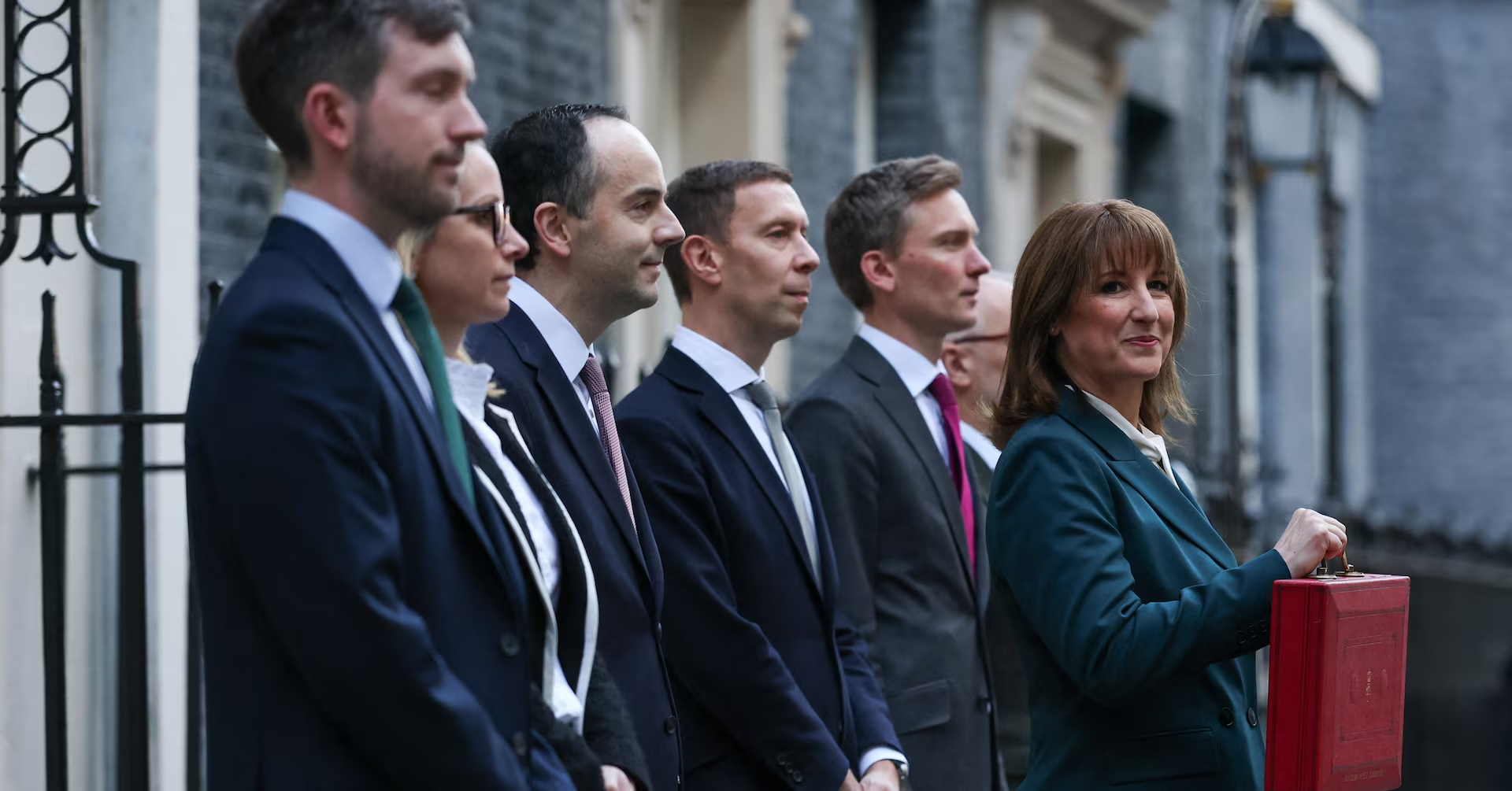Item 1 of 3 British Chancellor of the Exchequer Rachel Reeves poses with the red budget box outside her office in Downing Street in London, Britain, November 26, 2025. REUTERS/Isabel Infantes
[1/3]British Chancellor of the Exchequer Rachel Reeves poses with the red budget box outside her office in Downing Street in London, Britain, November 26, 2025. REUTERS/Isabel Infantes Purchase Licensing Rights, opens new tabReeves curbs salary sacrificed perk above 2,000 poundsMeasure forecast to raise 4.7 bln pounds in 29/30Employers of high earners to see biggest impact
LONDON, Nov 26 (Reuters) – UK finance minister Rachel Reeves on Wednesday slashed a pensions tax perk that delivers savings to employers of Britain’s highest paid workers, with the government forecast to raise an extra 4.7 billion pounds ($6.18 billion) in 2029/30.
The reduction of the so-called salary sacrifice allowance was among the biggest tax-raising revenue measures announced by Reeves, as she seeks to balance the books and put Britain’s puiblic finances on a more secure footing.
Sign up here.
The government will cap the amount of money that can be shifted into pensions before National Insurance is charged to employers and staff to 2,000 pounds a year from 2029, the Office for Budget Responsibility said on Wednesday in an unexpected early release of its documents. Reeves later confirmed the change in her budget address to parliament.
MOST OF THE IMPACT WILL BE ON EMPLOYERS OF HIGH-EARNERS
The cap will claw back much of the revenues lost to national insurance relief from the employers of six figure-earners by dragging more of their total pay back into the tax net.
For example, a worker paid 125,000 pounds per year who had sacrificed a quarter of their gross pay as a pension contribution would now cost their employer 4,387.5 pounds more annually in national insurance payments, modeling by consulting firm Hymans Robertson showed. The six figure earner themselves would take a 585 pound annual hit from now only being able to reduce their total taxable pay by £2,000 every year.
A worker earning 40,000 pounds, which is just below the average full time wage for NHS workers, would not cost any extra to employ if they paid 5% into pension salary sacrifice, Hymans said, while their take-home also would not fall.
But Steve Webb, a former pensions minister, and partner at Lane Clark & Peacock said that because the salary sacrifice rules would not change until 2029 there was “high risk” that only a fraction of the projected amount would be raised.
“This provides many years in which employers can restructure the way that they offer pay and pensions to mitigate or eliminate this new charge,” he said.
($1 = 0.7603 pounds)
Reporting by Naomi Rovnick; Editing by Tommy Reggiori Wilkes
Our Standards: The Thomson Reuters Trust Principles., opens new tab

